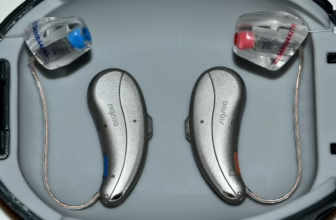As your loved one ages, it is not uncommon for them to experience physical or cognitive disabilities that require additional support and care. Hiring a nurse to provide assistance and medical attention can be a helpful solution for many families.
However, finding the right nurse for your disabled senior loved one can be overwhelming. There are many factors to consider, such as credentials, experience, and personality fit.
This article aims to provide essential tips and guidance for families considering hiring a nurse for their disabled senior loved ones. By following these tips, families can ensure their loved ones receive the best care and support from a qualified and compassionate professional.
1. Determine Your Needs
Begin by assessing the care required for your loved one's disabilities or medical conditions. For example, consider medication management, wound care, physical therapy, and mobility assistance. You should also consider your loved one's preferences, lifestyle, and cultural or language requirements.
Additionally, consider the frequency and duration of care needed and the caregiver's availability and flexibility. A clear understanding of your needs will help you narrow your search and find a qualified and experienced nurse. It will also ensure that you and the nurse have clear expectations and goals for your loved one's care.
2. Conduct Research
Start by asking for referrals from friends, family, or healthcare providers who have experience with similar situations. You can also search online for local nurse agencies or organizations that provide care for seniors with disabilities.
Evaluate their qualifications, certifications, and experience, and check if they have any reviews or testimonials from previous clients. According to Hubspot, reviews and testimonials are used by individuals as a means of assessing the credibility and reliability of a product, service, or vendor before deciding to trust them.
Conducting a background check is essential to ensure they have a clean criminal record and appropriate licenses. In addition, don't hesitate to ask for references and follow up with them to better understand the nurse's work ethic, reliability, and communication skills.
3. Check Credentials and Education
When hiring a nurse for a disabled senior loved one, it's crucial to check their credentials and education to ensure they have the qualifications to provide appropriate care. Look for a nurse who has completed a nursing program and holds a valid nursing license. It's also essential to check if they have additional certifications, such as Certified Nursing Assistant (CNA) or Registered Nurse (RN).
If your loved one requires specialized care, consider nurses with relevant credentials, such as a degree or specialization in Adult-Gerontology, which provides advanced training in caring for older adults with chronic illnesses.
When searching for qualified nurses who have received specialized training in wound care, physical therapy, or other relevant areas, it's worth considering those who have completed advanced education programs. For example, you might want to look for nurses who have completed the adult gerontology nurse practitioner Master's program at a reputable, accredited institution like the University of Indianapolis.
This institute is accredited by CCNE and requires 46 credit hours of coursework. Furthermore, the University of Indianapolis was recognized as a Nursing School of Distinction in 2021 and is nationally ranked according to the US News & World Report.
4. Consider Experience
When searching for a nurse for your disabled senior loved one, it's crucial to consider their experience. Look for a nurse who has worked with seniors with similar disabilities or medical conditions. A nurse who has worked in a hospital or rehabilitation center may have experience with various medical issues and emergencies.
You can also look for nurses who have worked with seniors from diverse cultural backgrounds or who have experience working with individuals with dementia or Alzheimer's. It's crucial to mention here that according to Alzheimer's Association, more than 6.7 million people over the age of 65 will live with Alzheimer's in the US in 2023.
Hiring an experienced nurse will give you peace of mind and ensure your loved one receives high-quality care.
5. Conduct Interviews
Interviewing the potential candidates allows you to better understand their experience, qualifications, and personality fit. During the interview, ask specific questions about their experience working with seniors with disabilities, their approach to care, and their availability. It's also essential to discuss your loved one's needs and expectations and ensure that the nurse is comfortable providing the required level of care.
Consider how the nurse's personality and communication style align with your loved one's needs and preferences. Remember that hiring a nurse is not just about their qualifications but also about finding someone who can build a sturdy and positive relationship with your loved one.
6. Discuss Payment and Logistics
When hiring a nurse for a disabled senior loved one, discussing payment and logistics upfront is important. Determine the hourly or daily rate for the nurse's services and whether they will be covered by insurance or paid out of pocket. You should also discuss payment schedules and any additional fees, such as transportation costs or overtime fees.
It's also essential to discuss logistics, such as scheduling and communication methods, and ensure that the nurse is comfortable with the arrangement. According to a recent survey by Genworth, the national median annual cost rate for homemaker services is $59,488, while the average yearly cost for home health aide services is $61,776.
Consider how these costs fit into your budget and whether any financial assistance options are available, such as Medicare or Medicaid.
Discussing payment and logistics will help you avoid any misunderstandings or conflicts down the road and ensure a smooth and stress-free caregiving experience for you and your loved one.
7. Follow Up
Following up with the nurse you hire is essential to ensure your loved one receives the best possible care. In addition, establishing open and clear communication channels and scheduling regular check-ins to discuss your loved one's progress and any concerns or issues is necessary.
You can also provide feedback on the nurse's performance and address concerns or issues. Regular follow-up will not only help you ensure your loved one's well-being but also provide emotional support and reduce caregiver stress.
To Wrap it Up
Hiring a nurse for a disabled senior loved one can be challenging and emotional. However, by following these essential tips, you can ensure that you find the right nurse to provide the best possible care for your loved one.
These steps will help you find a nurse who is qualified, experienced, and a good personality fit for your loved one. Additionally, following up with the nurse regularly will help you ensure that your loved one is receiving the best possible care and providing emotional support.
Remember, hiring a nurse is not just about their qualifications. It's also about finding someone who can build a robust and positive relationship with your loved one.
Follow me down the rabbit hole!
I'm Alice and I live with a dizzying assortment of invisible disabilities, including ADHD and fibromyalgia. I write to raise awareness and end the stigma surrounding mental and chronic illnesses of all kinds.








